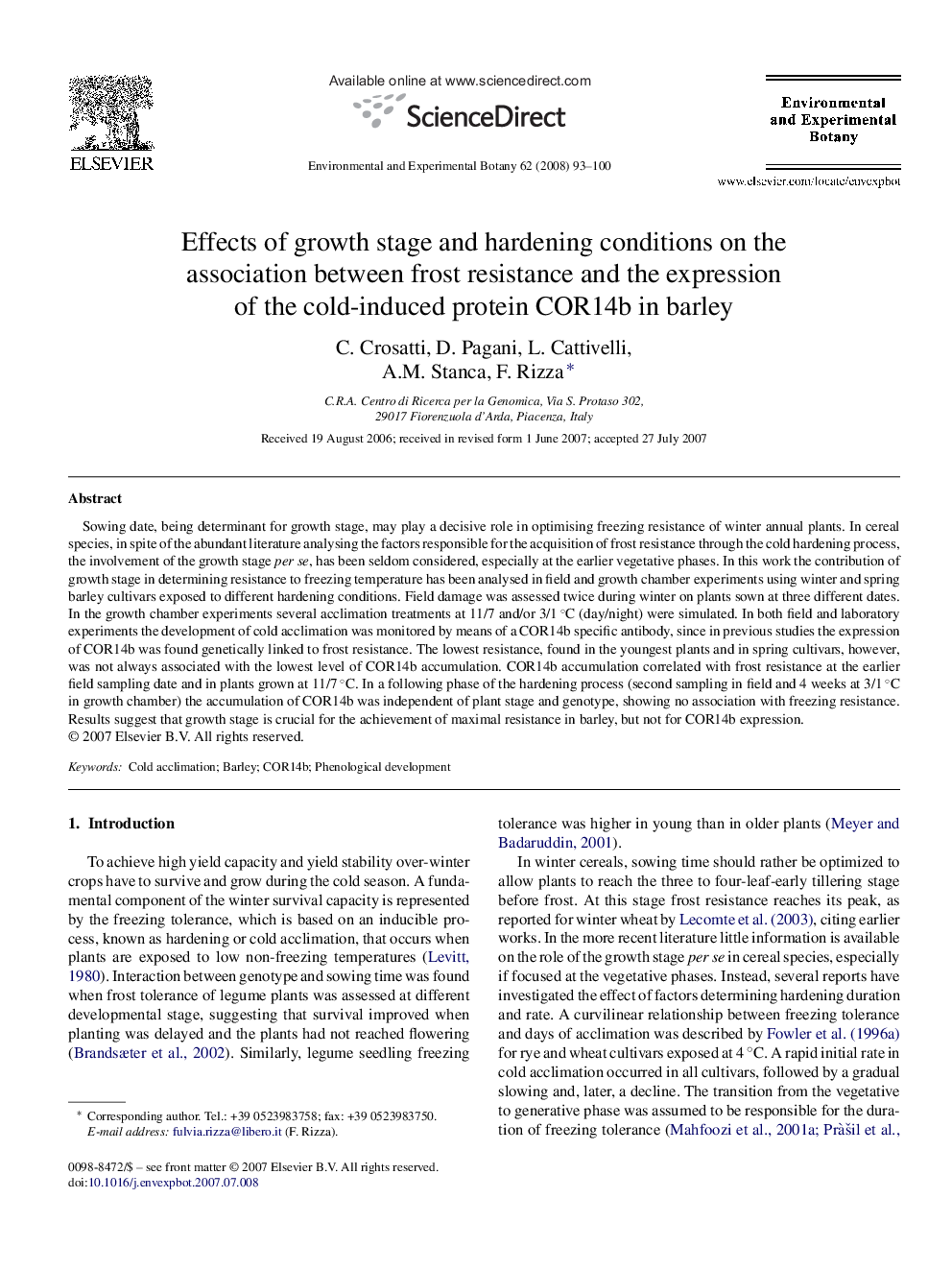| Article ID | Journal | Published Year | Pages | File Type |
|---|---|---|---|---|
| 4555338 | Environmental and Experimental Botany | 2008 | 8 Pages |
Sowing date, being determinant for growth stage, may play a decisive role in optimising freezing resistance of winter annual plants. In cereal species, in spite of the abundant literature analysing the factors responsible for the acquisition of frost resistance through the cold hardening process, the involvement of the growth stage per se, has been seldom considered, especially at the earlier vegetative phases. In this work the contribution of growth stage in determining resistance to freezing temperature has been analysed in field and growth chamber experiments using winter and spring barley cultivars exposed to different hardening conditions. Field damage was assessed twice during winter on plants sown at three different dates. In the growth chamber experiments several acclimation treatments at 11/7 and/or 3/1 °C (day/night) were simulated. In both field and laboratory experiments the development of cold acclimation was monitored by means of a COR14b specific antibody, since in previous studies the expression of COR14b was found genetically linked to frost resistance. The lowest resistance, found in the youngest plants and in spring cultivars, however, was not always associated with the lowest level of COR14b accumulation. COR14b accumulation correlated with frost resistance at the earlier field sampling date and in plants grown at 11/7 °C. In a following phase of the hardening process (second sampling in field and 4 weeks at 3/1 °C in growth chamber) the accumulation of COR14b was independent of plant stage and genotype, showing no association with freezing resistance. Results suggest that growth stage is crucial for the achievement of maximal resistance in barley, but not for COR14b expression.
